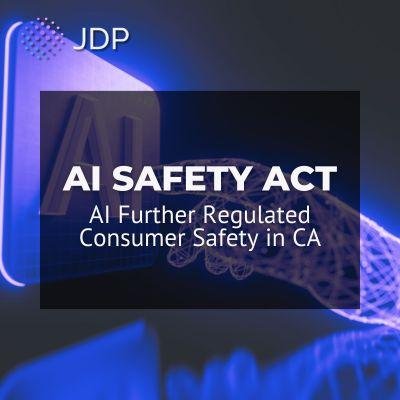California leads the Way with First AI Safety Legislation
In an era where technological advancements shape our daily lives at a breakneck pace, California has once again found itself at the forefront of innovation-not just in the progress of artificial intelligence, but in ensuring its safe integration into society. As the golden state unveils the nation’s first thorough AI safety legislation, the implications stretch far beyond its borders, potentially setting a precedent for how other states and countries navigate the complex relationship between cutting-edge technology and public welfare. This groundbreaking move aims to strike a delicate balance between fostering innovation and safeguarding against the potential risks associated with AI. as the world watches closely, California’s bold steps may well redefine the trajectory of AI governance, inspiring a global conversation on ethical technology.
Table of Contents
- California AI safety law scope risk thresholds and priority sectors
- Governance and accountability duties for developers and deployers audits enforcement and liability
- Technical safeguards independent red teaming secure evaluations provenance and resilience standards
- Transparency and public oversight incident reporting dataset documentation researcher access and whistleblower support
- Implementation roadmap milestones shared testbeds workforce training funding and public metrics
- Insights and Conclusions
California AI safety law scope risk thresholds and priority sectors

The newly established AI safety legislation in California comprehensively defines the criteria for assessing risks posed by AI systems. Classifying AI technologies based on their potential impact, the law introduces a tiered system for risk thresholds. For example, systems recognized as having high-risk implications must undergo rigorous evaluations, while medium-risk implementations undergo a moderate level of scrutiny. This matrix allows regulators to tailor oversight appropriately, ensuring that high-stakes applications receive the most comprehensive oversight. Key categories include:
- Healthcare AI: Technologies that influence patient diagnosis and treatment.
- Finance AI: Algorithms used for credit scoring and trading decisions.
- Transportation AI: Autonomous vehicles and logistic systems.
- Employment AI: Systems affecting hiring decisions and employee monitoring.
Priority sectors identified in the legislation-where safe and ethical AI deployment is paramount-are carefully selected for monitoring and enforcement.By focusing on these areas, the law aims to mitigate risks associated with bias, accountability, and transparency. in addition to the defined risk categories,compliance mechanisms will involve periodic audits,public reporting of AI applications,and dedicated oversight by regulatory bodies. Below is a summary of the prioritized sectors:
| Sector | Risk Level | Regulatory Focus |
|---|---|---|
| Healthcare | High | Bias Detection |
| Finance | High | Transparency and Fairness |
| Transportation | Medium | Safety Protocols |
| employment | Medium | Accountability standards |
Governance and accountability duties for developers and deployers audits enforcement and liability

as California spearheads AI safety legislation, the focus on governance and accountability becomes paramount. Developers and deployers of AI technologies are now faced with stringent obligations to ensure compliance with established safety standards. Key responsibilities include:
- Regular Audits: Conduct thorough audits of AI systems to assess compliance with state regulations.
- Transparency: Maintain clear records of decision-making processes and algorithm functionalities.
- Risk Assessment: Identify, evaluate, and mitigate potential risks associated with AI deployments.
Moreover, the legislation introduces robust mechanisms for enforcing accountability among AI developers. With clearly defined liabilities, the onus is on the industry to ensure they meet legislative expectations. Essential factors include:
- Legal Liabilities: Developers may face penalties for non-compliance with safety standards.
- Consumer Rights: Users have the right to raise concerns about AI behaviour, prompting developers to address shortcomings promptly.
- Collaboration with Regulatory Bodies: Continuous engagement with regulators is necessary to foster an environment of responsible AI usage.
Technical safeguards independent red teaming secure evaluations provenance and resilience standards

In recent advancements towards comprehensive AI safety measures, California is carving out a pathway that intertwines technical preparedness with robust evaluation standards. The implementation of independent red teaming is at the forefront, ensuring that AI systems undergo rigorous external testing. This involves a systematic approach to uncover vulnerabilities and enhance resilience through the following pivotal components:
- Provenance: Tracing the origins and modifications of AI data to ensure integrity.
- Assessment: Employing seasoned experts to conduct rigorous evaluations designed for real-world scenarios.
- Compliance: Establishing clear standards to align AI practices with legal frameworks and ethical norms.
Moreover, fostering a culture of resilience encompasses preparing AI systems to withstand and recover from unforeseen incidents. Evaluations are not solely for compliance but also serve as a blueprint for future innovations. The synergistic effect of these enhancements can be illustrated in the table below, summarizing their combined impact on AI safety:
| Component | Impact |
|---|---|
| Red Teaming | Identifies vulnerabilities |
| Provenance Tracking | Ensures data integrity |
| Compliance Standards | Aligns with legal and ethical norms |
Transparency and public oversight incident reporting dataset documentation researcher access and whistleblower support

California’s commitment to AI safety extends beyond mere regulatory frameworks; it emphasizes transparency and public oversight as crucial pillars. The new incident reporting dataset is designed to ensure that stakeholders-from researchers to everyday citizens-can access vital details regarding AI systems’ performance and safety records.This initiative not only fosters an environment of accountability but also allows the public to engage actively with AI technologies shaping their lives. Accessing this data can empower numerous entities, including:
- Academic researchers: who study the ramifications of AI on society.
- Policy makers: to craft data-driven regulations.
- Corporate entities: to understand and rectify potential AI flaws.
- Civil society organizations: advocating for ethical AI use.
Moreover, whistleblower support is a significant aspect of this legislation, encouraging individuals to report concerns without fear of retaliation. With streamlined processes for incident reporting, whistleblowers can contribute to the safeguarding of public welfare. To support this initiative, a dedicated resource page will provide comprehensive guidance and tools for reporting. Below is a brief overview of the support structure:
| Support Structure | Description |
|---|---|
| Confidential Reporting | Secure channels for submitting incident reports. |
| Legal Assistance | Access to legal support for whistleblowers. |
| Resource Centers | Guidance on understanding AI safety legislation. |
Implementation roadmap milestones shared testbeds workforce training funding and public metrics
As california embarks on a groundbreaking journey with its AI safety legislation, several key milestones will guide its prosperous implementation. Central to this initiative is the establishment of shared testbeds where stakeholders can come together to evaluate and improve AI systems. These collaborative environments will allow for the formation of:
- Robust performance metrics to assess AI reliability and safety.
- Cross-industry partnerships that drive innovation in safety protocols.
- Public engagement campaigns that foster community awareness of AI technologies.
To support these efforts, a workforce training program will be launched, ensuring that professionals are equipped with the necessary skills to navigate the evolving landscape of AI safety. Additionally, funding initiatives will prioritize resources for:
- Research and development in AI transparency and ethical considerations.
- Community workshops that provide hands-on experience with the legislation’s goals.
- Public metrics to track progress and hold stakeholders accountable.
| Milestone | Date | Objective |
|---|---|---|
| Launch of Shared Testbeds | January 2024 | Create a collaborative evaluation platform |
| Workforce Training Start | March 2024 | Equip professionals with AI safety skills |
| First Public Metrics Release | June 2024 | Assess transparency and safety of AI systems |
Insights and Conclusions
As the sun sets over the California coastline, casting a warm glow on the innovators and regulators working tirelessly to harness the power of Artificial Intelligence, one fact becomes exceptionally clear: the Golden State is paving the way for a future where technology and safety coexist. With the introduction of the first AI safety legislation,California not only sets a precedent for responsible innovation but also invites other states and nations to join the dialog on ethical AI. This landmark move signifies not just a protective measure for its citizens, but a bold step towards ensuring that the benefits of AI are distributed equitably and responsibly. As technology continues to evolve at an unprecedented pace, California’s initiative emerges as a beacon of hope, a reminder that with great power comes great duty. Looking ahead, the ripple effects of this legislation may inspire a global conversation about ethical frameworks and standards, proving that when it comes to the future of technology, collaboration and foresight are essential. In celebrating this landmark achievement, we look forward to a future where innovation is met with vigilance, creating a safer, smarter world for all.